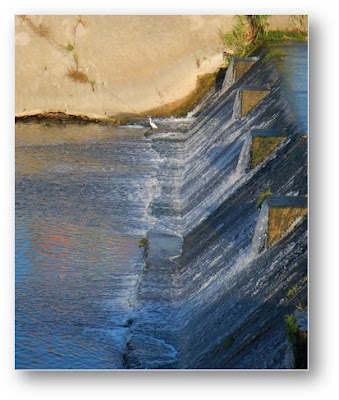Biosciences Seminar Series - Winter 2018
15 March 2018 - 1pm - Zoology Museum
Mapping and modelling the impacts of dams, weirs, and road culverts
Dr Stephanie Januchowski-Hartley
Our Biosciences Seminar Series continues with a talk by Dr Stephanie Januchowski-Hartley , who joined us this year as Sêr Cymru Rising Star Fellow at the Department of Biosciences at Swansea University (UK). Steph joined us from the Laboratoire Evolution et Diversité Biologique at Université Paul Sabatier in Toulouse (France), where she worked as research fellow on evaluating impacts of dams, weirs and roads on freshwater fish distribution and community composition. Originally from Michigan (USA), Steph is a Conservation Biologist especially interested in freshwater/fish conservation and more generally about the relationships between humans and nature, and her research has taken her widely across the world. Steph also is dedicated to connect the ecological and social aspects of Conservation Science and is passionate about communicating science, conservation and nature, using diverse media including poetry, sketching and drawing, photography and macro & micro blogging. Steph is also President of the Society for Conservation Biology Freshwater Working Group and European Section Board Member and closely works with the British Ecological Society, too.
Fresh waters are some of the most heavily modified ecosystems on earth, impacted by diverse human-induced stressors, many of which are associated with urbanization and infrastructure. Under ongoing global change, there are the both threats to, and opportunities for freshwater resources, and the species and communities that depend on these resources. Despite this, our understanding about instream infrastructure such as dams, weirs, and road culverts remains limited. To develop proactive conservation strategies requires an understanding about current and potential future occurrences of human-induced stressors within the context of global climate change. Drawing on examples from Colombia, North America, and France, I will discuss how we have begun to address these challenges for freshwater ecosystems by determining spatial locations and characteristic of current and potential instream infrastructure. Drawing on these cases, along with knowledge gained from local-scale case studies, I introduce future directions that my lab will be taking to inform cross-scale policy and management decisions related to instream infrastructure.
Hope to see many of you - everyone most welcome to attend!
For the list of forthcoming seminars see here
For the list of forthcoming seminars see here


